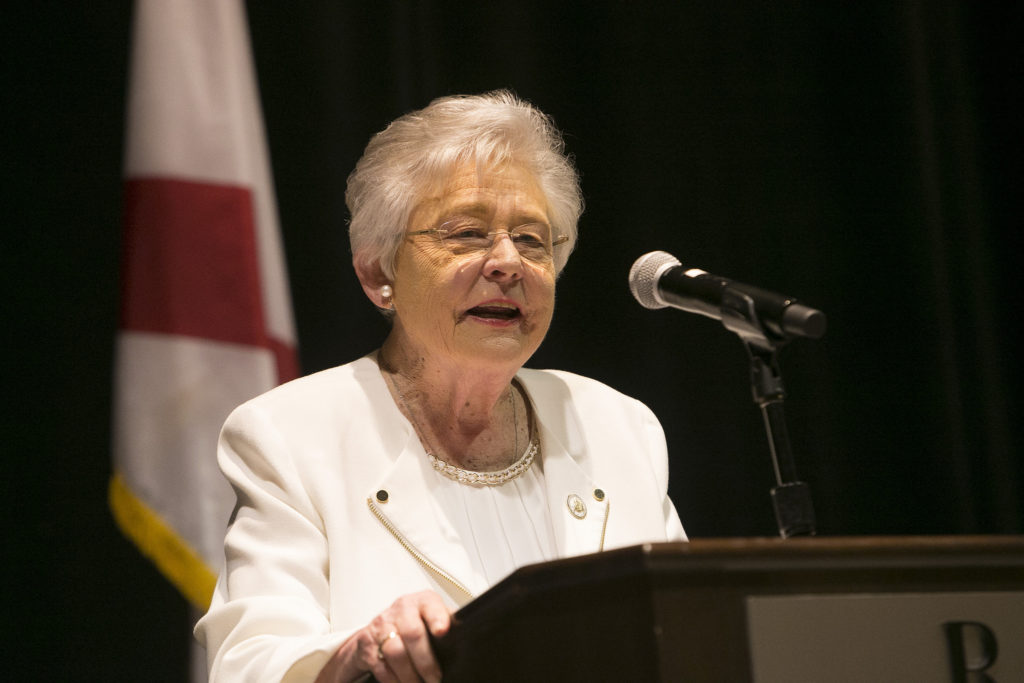Judge dismisses wrongful death lawsuit over abortion

An Alabama judge has dismissed a wrongful death lawsuit filed on behalf on an aborted embryo by a man who was upset that his ex-girlfriend ended her pregnancy. Madison County Circuit Judge Chris Comer ruled Friday that Ryan Magers could not bring a wrongful death claim over a legal abortion. Magers had sued the Alabama clinic where he believed his ex-girlfriend obtained the abortion pill, on behalf of himself and the estate of the aborted embryo. The Alabama case, which attempted to vest the embryo with legal rights, drew national attention in March after a probate judge allowed Magers to open a legal estate for the aborted embryo called “Baby Roe” in court filings. In seeking to open the estate, Magers pointed to a newly approved state constitutional amendment that says Alabama recognizes the “rights of unborn children.” The probate judge’s decision allowed Magers to represent the estate of the aborted embryo in the litigation. In the brief order, Comer wrote that Magers didn’t assert the defendants were engaged in unlawful conduct and the wrongful death claims are “precluded by existing state and federal laws pertaining to the conduct in question.” The ruling says that although Magers placed “great significance to the probate court’s” decision, Judge Comer found the probate court’s process “to be ministerial in nature.” The phrase means it follows a prescribed procedure. Magers and his then-girlfriend were both teenagers when she got pregnant in 2017, according to the lawsuit. Magers said the young woman had an abortion when she was about six weeks pregnant. The clinic, the Alabama Women’s Center, had asked for the case to be dismissed. A lawyer for the clinic told the judge during a July hearing that there was no wrongful death because abortion is legal. Dr. Yashica Robinson, an obstetrician who serves as the medical director of the clinic, called the lawsuit “thinly veiled attempts to abolish abortion, and to harass and intimidate abortion providers and women.” “We are elated that this attempt to push abortion care out of reach for women in Alabama was unsuccessful. Alabama Women’s Center remains committed to serving women in our state. We will continue to push back against all attacks on women’s rights to essential care!” Robinson wrote in a statement. J. Brent Helms, an attorney representing Magers, said they had anticipated the decision to dismiss the case. “We expected it would be dismissed at the trial court level. We knew we had to get to the appellate court level before we’d get traction,” Helms wrote in an email. He said Magers is weighing whether to appeal. Republished with the permission of the Associated Press.
Governor Kay Ivey doesn’t plan to resign over blackface skit

Alabama Gov. Kay Ivey said Tuesday that she should not have worn blackface in a college skit decades ago, but she does not plan to resign over something that happened so long in the past. In her first public appearance since issuing a public apology last week, Ivey, 74, reiterated that she was wrong to appear in the skit over 50 years ago and that it does not reflect who she is today. The Republican governor said she has no plans to quit. “Heavens no, I’m not going to resign. It’s something that happened 52 years ago and I’m not that person. My administration stands on being inclusive and helping people,” the Republican governor said. Ivey last week apologized after a 1967 college radio interview surfaced of her then-fiancé Ben LaRavia describing her wearing “black paint all over her face” in a skit called “Cigar Butts” at skit night at the Baptist Student Union. Her office released the recording after university officials discovered it while working on a project to preserve old university records. Her admission of wearing black face came after she had told The Associated Press in February that she had never done so. Ivey said Tuesday that she doesn’t remember the skit. “I was shocked to hear the tape. I didn’t remember being at the Baptist Student Union in any kind of skit like that for sure. But I’ve apologized for it. I should not have done that. I know it’s important to apologize to the people of Alabama,” Ivey said Tuesday. Ivey’s public apology drew a mixed reaction. The Alabama NAACP on Tuesday repeated a call for Ivey to resign. The group pointed to some of her actions as governor, including signing legislation to protect Confederate monuments and other historic statues from being torn down. “The NAACP believes Governor Ivey needs to do the right thing and resign as Governor and let someone lead the people of Alabama into a brighter and more inclusive future, not the status quo,” Benard Simelton, president of the Alabama NAACP, said in a written statement. The organization said if Ivey is serious about racial reconciliation, she should consider policies such as Medicaid expansion to “level the playing field in areas of education, and healthcare.” Alabama Senate Minority Leader Bobby Singleton, who is African American, said last week that he appreciated Ivey “owning” the incident and apologizing for it. Ivey said Tuesday that she has mostly received positive reactions. Ivey is the latest politician to face scrutiny over wearing blackface decades ago. A racist photo in the medical school yearbook of Virginia Gov. Ralph Northam led to calls for his resignation. Virginia Attorney General Mark Herring also acknowledged wearing blackface in college. The skit, which appeared to have taken place in 1967, came three years after the first African American student entered Auburn and six years after segregationist Gov. George Wallace’s infamous stand in the school house door to try to block the entry of two African American students at the University of Alabama. Republished with the permission of the Associated Press.
Democrats face identity crisis in next phase of 2020 race

Doug Ogden doesn’t know what to do. The 75-year-old retired law enforcement officer is disgusted by President Donald Trump. But he can’t imagine voting for a Democrat in 2020, either. A self-described independent in South Carolina, Ogden doesn’t recognize the modern-day Democratic Party. “The state of the Democratic Party is wild against wilder,” says Ogden, standing with his arms crossed at a recent town hall meeting for Democratic presidential hopeful Pete Buttigieg. “It scares me.” At the core of Ogden’s concern is a broader question about the direction of the Democratic Party and its values in the age of Trump. While Democrats are united in their fierce opposition to the Republican president, most party leaders agree that Democrats will not reclaim the White House simply by running against him; they must give people something to vote for. But nine months into the first year of the 2020 campaign season, Democrats are no closer to resolving the big questions dividing their party by race, generation and ideology than they were on the day of Trump’s inauguration. And as the campaign enters a new heightened phase after Labor Day when far more voters begin paying closer attention, there is increasing pressure on Democrats to answer the questions behind their extended identity crisis. How can they peel back Trump’s support with white working class voters while boosting turnout with minorities and suburban women? How hard should they lean into anti-Trump fervor and calls for impeachment? And perhaps above of all, should they embrace transformational change on issues like health care, free college and higher taxes on the rich or a modest shift back to normalcy after Trump’s turbulent presidency? Some Democrats suggest an all-of-the-above strategy. But other presidential candidates, party leaders and top activists are searching for more definite answers to win over those anxious voters desperate for something or someone else to believe in. “There are diverse messages coming from diverse candidates,” Sen. Bernie Sanders of Vermont, a 2020 presidential candidate, said in an interview. “What the corporate media and the corporate pundits are trying to tell us is that it’s a middle-of-the-road agenda that will win the election. I categorically disagree,” said Sanders, a self-described democratic socialist. Sanders, of course, represents the Democratic Party’s energized left flank. Montana Gov. Steve Bullock, the only member of the Democrats’ 2020 class who has held statewide office in a state Trump won, fears his party will scare away the very same working class voters it needs to beat Trump if they embrace extreme change. “We need to make sure voters know we can improve upon their lives,” Bullock said in an interview. “That’s less about a revolution than addressing the problems of here and now.”In the middle of the Democratic Party’s quest for a clear identity are candidates like Kamala Harris and Buttigieg, the 37-year-old openly gay mayor of South Bend, Indiana, whose positions straddle the divide in a party whose poles are set by Sanders and Sen. Elizabeth Warren of Massachusetts on the left and by former Vice President Joe Biden and Bullock, among others, as moderates. As Buttigieg courted overwhelmingly white audiences recently in rural South Carolina, he said it was a “false choice” to think Democrats have to appeal to minority voters at the expense of the white working class. And he offered a direct message to older, white voters like Ogden, who fear that his party has become too focused on the concerns of minority voters. “Supporting people like him and making sure we have racial justice in this country go hand in hand because everybody’s life in this country is diminished as long as these inequalities continue,” Buttigieg said in an interview. “We’ll know we’re getting where we need to be if being part of a minority — and, in particular, in this country right now being black — has no bearing on your health or your wealth or your relationship with law enforcement.” “It’s not only people of color who suffer from racial inequity. It drags down all of us,” Buttigieg continued. “I’m talking about what we’re trying to build up. And I think we can build a story about where America is headed, where everybody can see where they belong.” Buttigieg, like Sanders, Biden, Warren and Harris, will continue to have prominent voices in the 2020 conversation, having met new polling and fundraising standards to qualify for the next round of presidential debates. At the same time, several lesser-known centrists have been silenced by Democratic National Committee rules that pushed them off the debate stage altogether. Bullock, one of the castaways, fears his party isn’t doing enough to win back working class voters across the Midwest. Democratic leaders, he said, have “not incentivized actually talking to the voters that we need to win this election.” The Democrats’ search for a consistent message plays into the party’s broader quest to assemble a coalition to deny Trump reelection. Barack Obama twice won the presidency by inspiring stronger-than-normal support from young voters, minorities and working class men. That coalition failed to show up for Hillary Clinton in 2016, but young people in particular helped fuel Democrats’ success in the midterm elections last year. An estimated 31% of voters ages 18 to 29 turned out to vote in 2018, with 2 out of 3 backing Democrats, according to data compiled by the Center for Information & Research on Civil Learning and Engagement at Tufts University. Yet it’s unclear how committed Democrats are to energizing young voters in 2020.The Democratic National Committee only just recently hired its first full time staffer dedicated to youth turnout, according to Calvin Wilborn, president of the College Democrats of America. “The party is moving in the right direction. I’m not sure it’s moving fast enough,” Wilborn warned. Many liberal activists are convinced that black and Hispanic voters hold the key to Democrats’ victory in 2020. Much of the Democratic establishment, meanwhile, is far more focused on white working class men, a voting bloc that shifted


